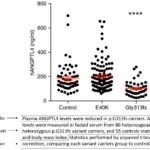The outbreak of COVID-19 has resulted in the cancellation of numerous academic conferences worldwide, with Nature questioning whether 2020 could be the “year without conferences” [1]. It is not so unusual for academic events to be cancelled. For example, the 2012 American Political Science Association (APSA) Annual Meeting was cancelled because of Hurricane Isaac [2]. […]
COVID-19-related resources for academics
In this short blog, we discuss the latest resources and initiatives freely available to academics and the public to combat the COVID-19 pandemic. Preprint servers and expedited peer-review Preprint servers are the fastest way to disseminate your research. Over 600 COVID-19-related preprints have already been posted on medRxiv and bioRxiv (see Visit Medrxiv for latest […]
China to end the reign of the impact factor?
Despite numerous commentators denouncing the metric and many prestigious journals discontinuing its use as a promotional tool, the journal impact factor (JIF) refuses to go away and remains pervasive in scientific publishing. “The impact factor is a statistically indefensible indicator of journal performance; it flatters to deceive, distributing credit that has been earned by only […]
Is it misconduct to submit a translated version of a published paper to another journal?
The short answer … Yes – if you do not declare that it is a translated version of an already published paper. No – if you make it clear that it is a translated version, i.e., not original research. This blog English is the (current) universal language of science. The pressure on English-as-a-second-language (ESL) researchers […]
How to write a figure caption
Figure captions should be standalone, i.e., descriptive enough to be understood without having to refer to the main text. Effective captions typically include the following elements: a declarative title that summarises the result or major finding of the data you are presenting in the figure; a brief description of the methods necessary to understand the […]





